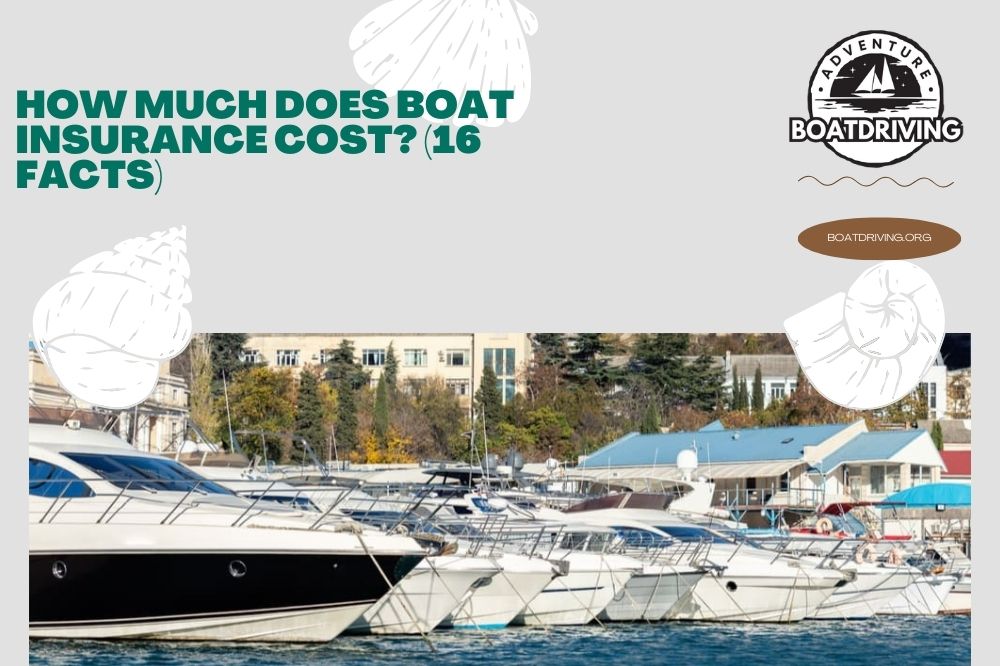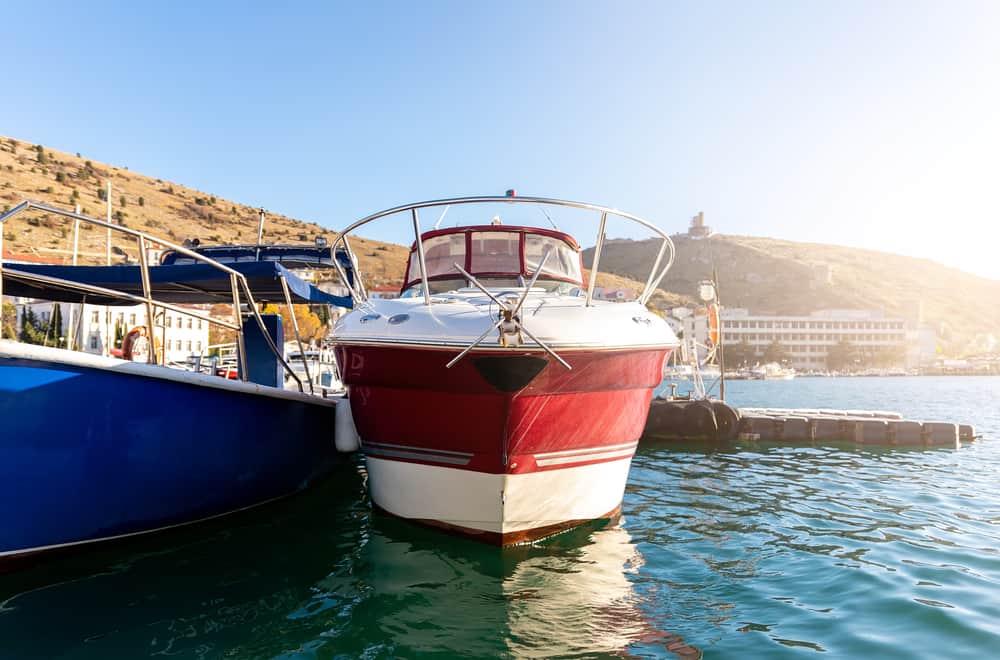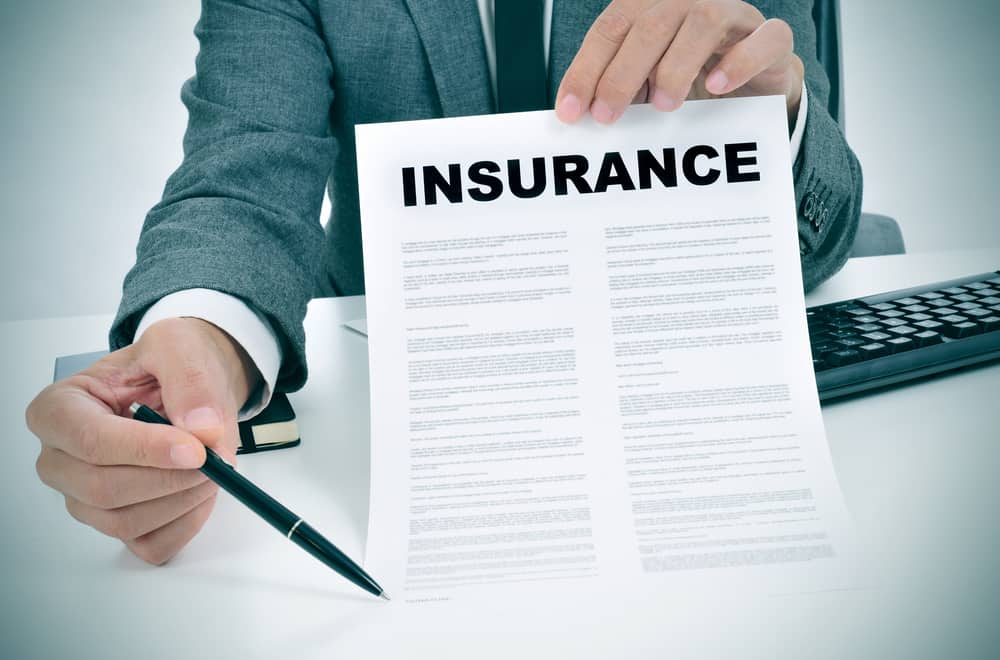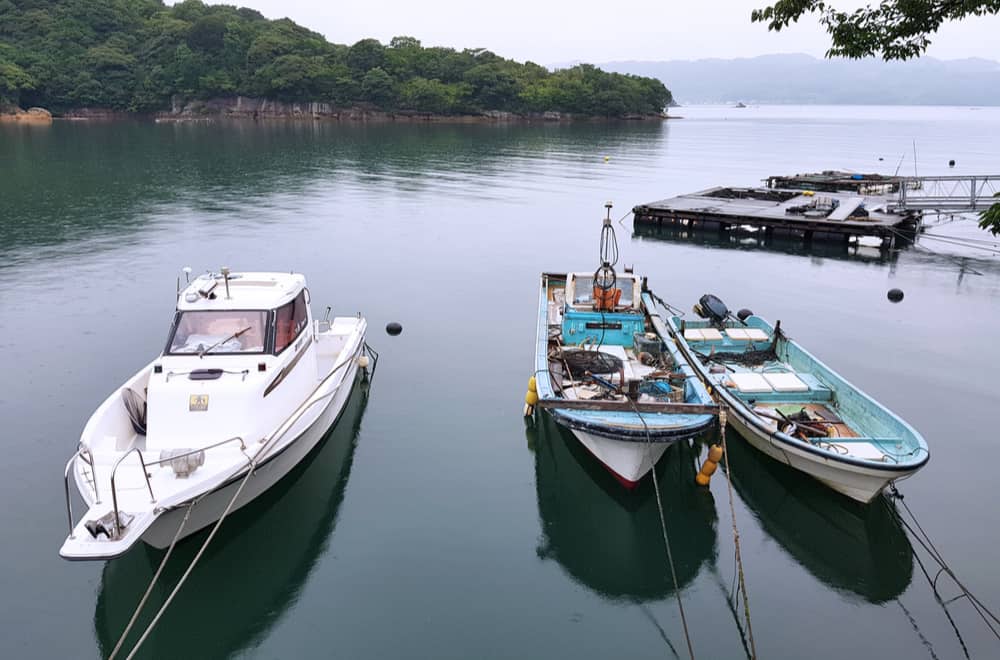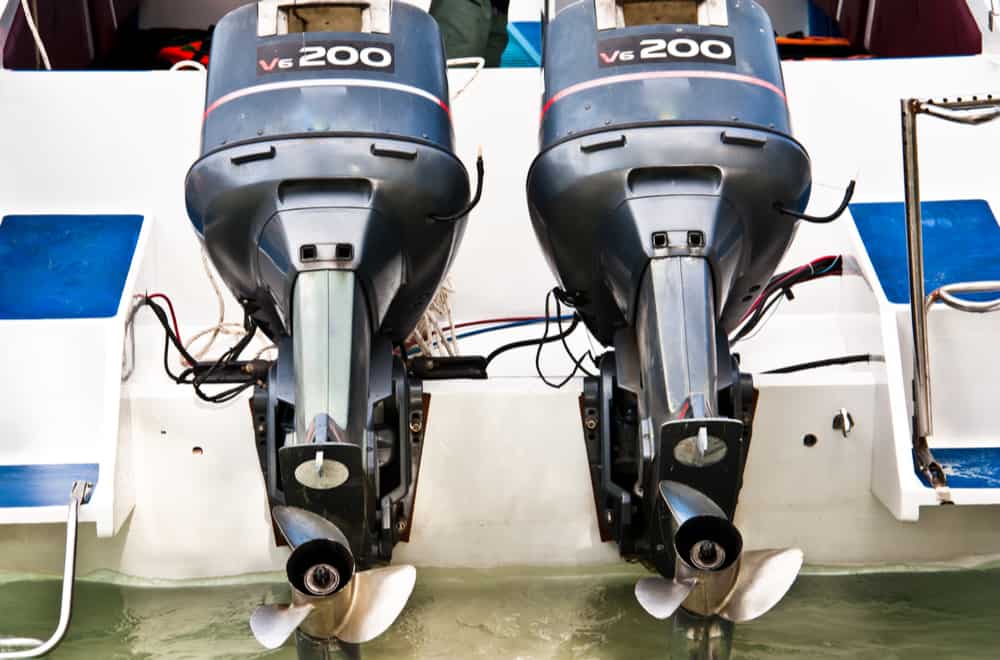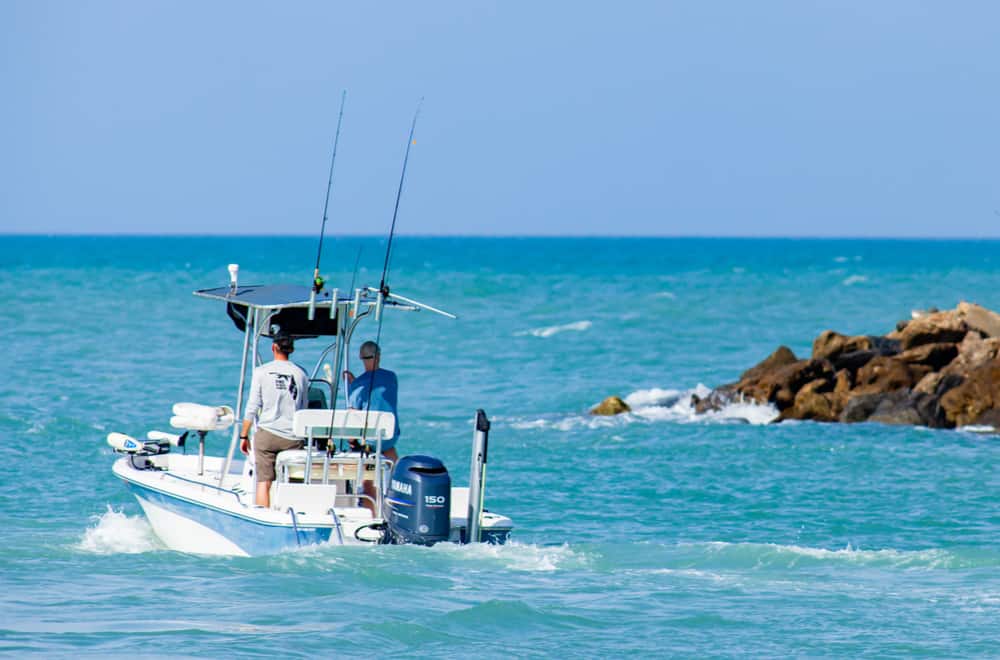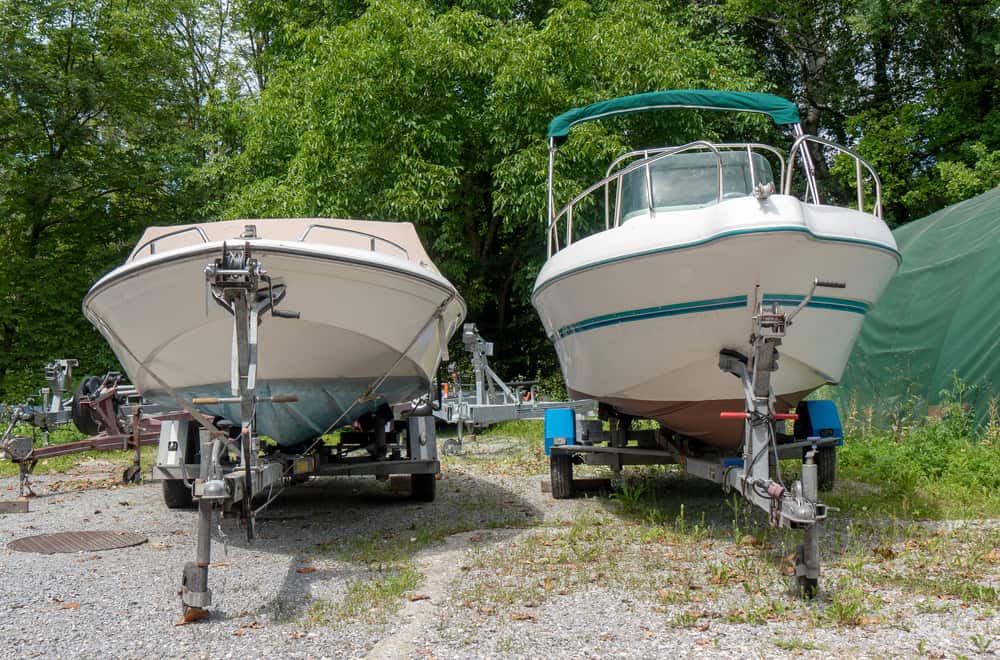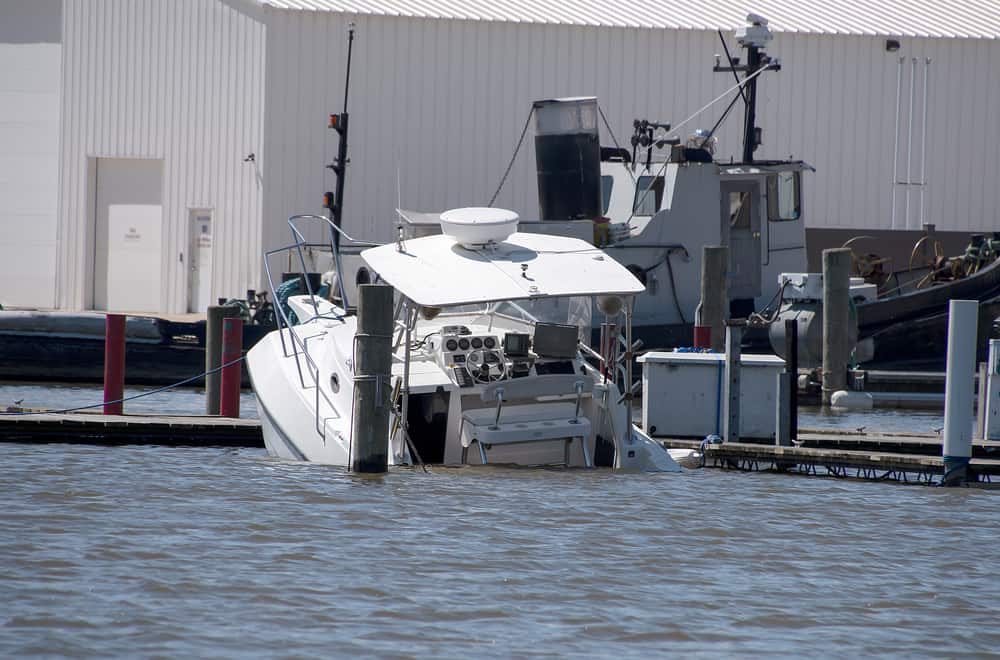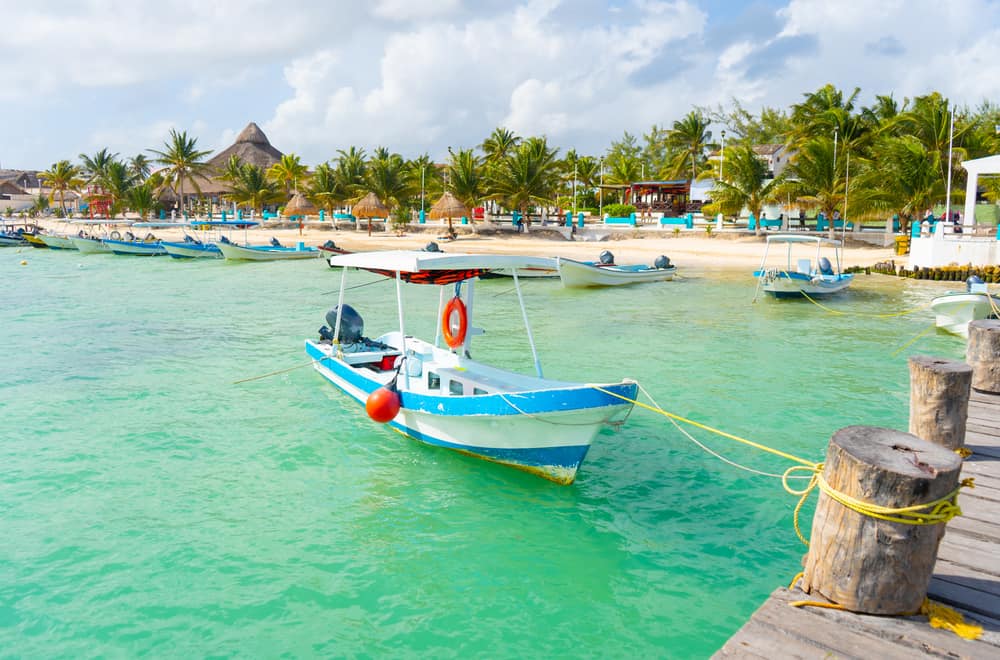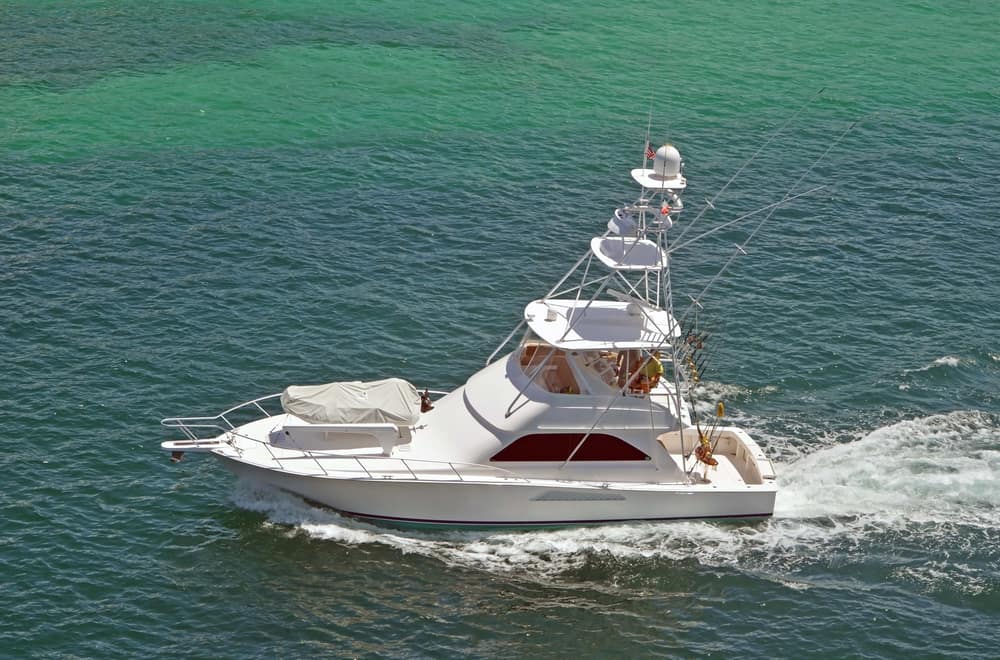Boat insurance is a necessity in the contemporary world. It will protect you in case of an accident with damaged property or someone’s injury. The crucial question is how much does boat insurance cost.
In most cases, you can expect to pay insurance for a powerful and costly boat 1% to 5% of its value. On the other hand, the price is only a few hundred dollars for small vessels. Be prepared that numerous factors affect the final bill you should pay. Let’s see.
Table of Contents
How Much Does Boat Insurance Cost?
The national average boat insurance cost is $200 to $500 annually for smaller vessels. However, the calculation method is different for expensive yachts and sailboats.
These rates will vary, depending on the state where you live. So, you will pay an annual policy of $263 at an average in low-cost states, while the price can reach $527 in high-cost states. Sometimes, the insurance company will require a higher rate, depending on your profile and your boat’s characteristics.
Average boat insurance cost |
||
| Low-cost states with $263 annual policy | Medium-cost states with $344 annual policy | High-cost states with $527 annual policy |
| Arkansas | Arizona | Alaska |
| Colorado | Georgia | Alabama |
| Indiana | California | Connecticut |
| Illinois | Kentucky | Delaware |
| Iowa | Idaho | Hawaii |
| Kansas | Michigan | Florida |
| Montana | Maine | Louisiana |
| Missouri | North Carolina | Massachusetts |
| Minnesota | North Dakota | Maryland |
| New Hampshire | New Mexico | Mississippi |
| Nebraska | Oregon | New Jersey |
| Pennsylvania | Oklahoma | New York |
| Ohio | Tennessee | Nevada |
| South Dakota | Virginia | Rhode Island |
| Vermont | West Virginia | South Carolina |
| Utah | Washington | Texas |
| Wisconsin | Wyoming | |
You need to pay approximately 1% to 5% of your sizable and powerful boat’s value for insurance. For instance, annual insurance for a $100,000 yacht will cost you $1,000 to $5,000. You should count on at least $2,500 a year in most cases.
If you are lucky and have a $2 million worth yacht, your insurance will be at least $30,000 a year.
However, you can’t count on a fixed rate for insurance since numerous factors will significantly affect the price you need to pay. Even though some will increase your insurance rate, most will reduce your costs.
Factors That Affect Boat Insurance Costs
As you can expect, numerous factors affect boat insurance, so you should be careful before making a deal.
1. Insurance type
Agreed value – This policy will cover your vessel based on its current value. Even though it costs more initially, it will pay off over time, mainly because there is no depreciation for a total boat loss.
Actual cash value – Such a policy is less expensive but includes depreciation. In other words, you can get only the real boat cash value in case of its partial or total loss.
2. Boat type
You can expect that insurance will be higher when you have a more sizable boat. Be prepared that the insurance company will consider everything, including your boat type, make, model, size, and extra features.
While you should pay only a few hundred dollars for fishing boats, sailboats, and pontoons, yacht insurance is typically higher.
3. Boat condition
You can lower your boat insurance when your vessel is in excellent condition, particularly when it meets the US Coast Guard safety standards.
Remember that your vessel should fulfill standards valid when it is produced. With outdated safety features, you can expect higher premiums.
There are no rules for homemade boats without a serial number and houseboats without an engine. If you have one, the insurance price will depend on the agreement with the insurance company.
Remember that boat insurance can’t fully cover your boat if you live on it. In that case, you will need a separate policy.
4. Boat age
As you can guess, the insurance policy will significantly depend on boat age. The rule of thumb is that older boats belonging to one owner are always cheaper to insure.
Even though insurance for new boats is more pricey, buying a used boat won’t lower your costs. Most insurance companies provide better rates for vessels owned by one person.
5. Engine
Your insurance price will depend on the engine type and its power. It is crucial to determine if your motor is:
- Inboard or outboard
- High-powered with higher horsepower or not
You can expect a boat with a high horsepower engine to have a higher insurance rate.
6. Safety measures
You can expect to pay a lower rate when finishing a certified boating safety course. Even having Coast Guard-approved fire extinguishers will positively affect your bill.
7. Your boating history
Insurance rates will be lower for experienced boat owners than novices. Insurance companies will charge less when they are sure that you know what you are doing.
8. Boat use
One of the crucial factors that affect the insurance rate is the activity type you want to use your boat for. You will typically pay less for a vessel you use for occasional fishing since the risk of an accident is lower.
On the other hand, you should count on higher premiums when using your boat for risky activities, like towing wakeboards, parasails, or water skis. You will need a business policy when using it for paid tours or fishing excursions.
Finally, you need specific insurance if you participate in boat racing. Be aware that some standard boat insurance companies won’t accept to cover such an activity.
9. Boat frequency of use
Since boating accidents typically happen on the water, you will pay less when using your boat only occasionally. Therefore, people living in the north who use their boats only seasonally typically pay lower insurance.
10. Your gender and age
The boat owner profile directly affects insurance premium cost. The insurance company will primarily check your age and gender. For instance, you will pay more if you are a teenager or young man driving a powerful boat.
On the other hand, you can expect a lower price if you are female over 27. In most cases, you will get a better insurance rate if you are 25 to 60 years old since it is considered that you are more responsible.
Warning! Kids under 12 years can’t drive a 25+ HP boat. Plus, sailors born after 1982 need to get a boating safety education certificate before getting permission to sail.
11. Ownership
Before getting an offer for boat insurance, you need to list possible boat users. If you add your teenage son as someone who will regularly use your vessel on your policy, the insurance company won’t have mercy. Be sure that they will charge you a significantly higher rate than usual.
Ownership will also affect the final insurance price. If the boat has more than two owners, you can expect to pay a higher rate.
12. Your driving record
Your insurance rate will be lower if your driving record is without recent insurance claims, accidents, and possible injuries. Keep in mind that the insurance company will also consider your auto driving record, but it won’t impact your boat insurance rate.
13. Your credit score
According to statistics, those with a lower credit score have boating accidents more often. So, you can expect a higher insurance rate if your credit score is low.
14. Way of payment
Most people pay boat insurance monthly or quarterly. Therefore, you will probably get a better rate when paying your annual bill at once.
15. Your location
Location is always crucial, so your insurance rate will depend on the state and region you live in.
For instance, you will pay more when using a boat on the ocean or the Great Lakes, known for hurricanes and storms. On the other hand, your insurance will be less expensive if your state has no coastline.
16. Homeowner’s discount
Most insurance companies will lower your rate if you own a house. You can sometimes pay a bundle that will cost you less. However, you can choose different companies for your home and boat insurance and still get a discount because of homeownership.
What Does Boat Insurance Cover?
Liability is boat insurance that covers the boat repair and necessary medical costs when you cause an accident. That also includes help with paying the legal fees.
Your insurance policy will cover physical boat damage caused by:
- Boating crash
- Damage on your boat from weather conditions, like wind, lightning, and hail
- Vandalism and boat theft
- Fire
You can also include guest passenger liability. It will cover you when someone else causes an accident while driving your vessel. The condition is that that person has your permission to use your boat.
The insurance will also include:
- Repairing damage on the dock and someone else’s property
- Cleaning-up pollutants, including oil, released from your boat into the water
Most insurance policies will also cover your property, like a navigation system, fishing gear, and boat trailer. You can ask for adding coverage for any equipment you plan to keep on the boat, such as:
- Navigation hardware
- Scuba equipment
- Tablet and computer
- Binoculars
- Sunglasses
- MP3 player and cell phone
- Bluetooth speakers
- Jewelry
Medical costs are always included in insurance. In other words, you are covered when someone is hurt in a boating accident that occurs as your fault. The good news is that your insurance covers you even when someone else causes an accident, although they have no insurance.
Summary
Boat insurance is necessary nowadays and depends on numerous factors connected with a boat and your profile. It is on you to find a reputable insurance company, check the prices, and ask for a possible discount. The final bill will depend on your information and perseverance in many cases. Good luck!
